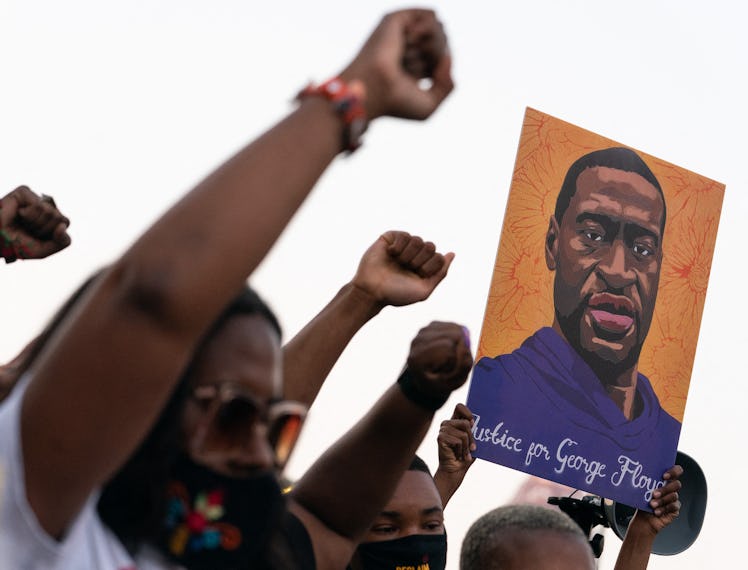After the Derek Chauvin Guilty Verdict, What's Next?

On Tuesday afternoon, after less than 24 hours of deliberation, the jury announced their verdict on the white former police officer Derek Chauvin: guilty, and on all three counts. Many could have predicted as much, given the viral footage clearly documenting the nine-and-a-half minutes he spent kneeling on the neck of George Floyd, a Black man. But the decision to charge Chauvin with second-degree murder, third-degree murder, and manslaughter was never a guarantee: Less than two percent of officers arrested for on-duty shootings have been convicted in the U.S. since 2005.
The verdict marks a milestone, but there’s still much more to come. A judge first has to sentence Chauvin. The fate of the other officers involved in Floyd’s death remains unknown. Meanwhile, the fight for broader police reform that will take more than a single trial continues. Here’s what we know about what’s next.
Where is Chauvin now?
Chauvin, who had been out on bail since October, is currently in a segregated housing unit at the Minnesota Correctional Facility in Oak Park Heights. “Administrative segregation is used when someone’s presence in the general population is a safety concern,” a prison spokesperson told CNN, describing it as “the state’s most secure unit.” The judge revoked his bail, meaning he’ll remain in custody until the next trial. He’ll be sentenced by the judge in eight weeks.
Meanwhile, the Department of Justice has launched its own investigation into whether Chauvin broke civil rights laws.
How long could the judge put Chauvin behind bars?
CNN reports that technically, Chauvin could face up to 10 years for manslaughter, up to 25 years for third-degree murder, and up to 40 years in prison for second-degree murder. (He would likely serve them concurrently.) A typical sentence for the latter felony in Minneapolis is around 12-and-a-half years. But since Chauvin had no previous criminal record, the judge could decide on as low as just three years and five months.
What about the other officers involved?
Like Chauvin, Tou Thao, J. Alexander Kueng, and Thomas Lane were all fired on the day after Floyd’s death. They were then charged with aiding and abetting both second-degree murder and second-degree manslaughter and will be tried together on August 23. Minneapolis typically doesn’t allow cameras inside its courts, but a judge ruled that the media can broadcast the trial last year.
And What About the Entire Minneapolis Police Department?
This morning, Attorney General Merrick Garland announced a general probe into the practices of the entire department. The investigation will also look at the Department's handling of protests in the wake of Floyd’s murder, including the use of excessive force.
“Yesterday’s verdict in the state criminal trial does not address potentially systemic policing issues in Minneapolis,” Garland said during his announcement.
What’s happening at the legislative level with police reform?
President Joe Biden promised the Floyd family that “we’re going to do a lot” in a phone call after the verdict was announced. But Biden has yet to officially achieve much so far, despite emphasizing racial equity throughout his campaign. So far, he’s mainly focused on advocating for passing the George Floyd Justice in Policing Act, which the House has already passed but the Senate has stalled on for months.
The bill would apply to every level of law enforcement and broadly prohibit racial profiling. It includes a ban on chokeholds, carotid holds, and no-knock warrants—the latter resulted in the death of Breonna Taylor—and institute a national police misconduct registry. Last but not least, it would reform qualified immunity, which shields officers from being held accountable for violating civil rights. The legal doctrine has drawn increasing scrutiny since Floyd’s death, banned in New Mexico, Connecticut, and Colorado—sort of. It’s still up to state lawmakers to interpret the relevant legislation (Section 1983), and it can technically still be legal for an officer to seek qualified immunity after a complaint.